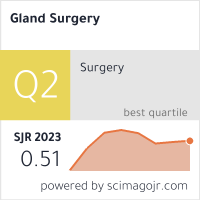NURSING CHALLENGES IN MANAGING INVASIVE AND NON-INVASIVE PROCEDURES
Abstract
This study investigated perceived difficulty and emotional stress of nurses for invasive and non-invasive medical procedures in different hospital departments. Using a quantitative design, 300 nurses' data were collected, and variables of perceived difficulty, emotional stress, years of experience, and type of procedure were examined. The study found that invasive procedures were far harder (means = 3.7) and emotionally stressful (means = 6.5) compared with their non-invasive equivalents (means = 2.6 and 3.6, respectively) with high statistical power (p < 0.001). Importantly, type of hospital department did not have a significant effect on perceived difficulty (ANOVA p = 0.37), and therefore routine protocols and repeated training may serve to reduce variability. A significant negative correlation between years of experience and perceived difficulty (r = -0.33, p < 0.001) was also observed, suggesting that experienced nurses perceive procedures as easier. Risk of infection and bleeding, and patient cooperation and communication were most frequent perceived difficulties with invasive and non-invasive procedures, respectively. Implications for nurse education, staffing plans, and design of support systems for improving procedural readiness and patient safety are provided by the findings. The limitation of the study is the use of subjective outcome measures and limited sample size. Future research is necessary to examine the impact of targeted intervention and further predictors of procedural difficulty.





